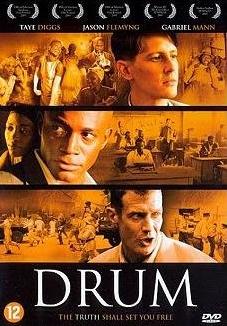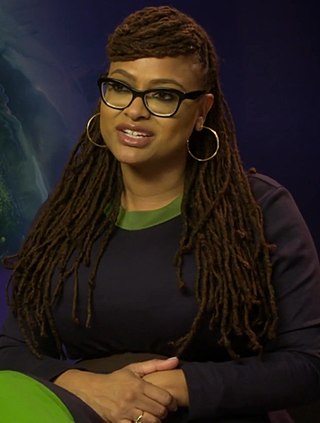Related Research Articles

Sarah Baartman, also spelled Sara, sometimes in the diminutive form Saartje, or Saartjie, and Bartman, Bartmann, was a Khoikhoi woman who was exhibited as a freak show attraction in 19th-century Europe under the name Hottentot Venus, a name that was later attributed to at least one other woman similarly exhibited. The women were exhibited for their steatopygic body type uncommon in Western Europe that not only was perceived as a curiosity at that time, but became subject of scientific interest as well as of erotic projection.
Lionel Ngakane was a South African filmmaker and actor, who lived in exile in the United Kingdom from the 1950s until 1994, when he returned to South Africa after the end of apartheid. His 1965 film Jemima and Johnny, inspired by the 1958 "race riots" in Notting Hill, London, won awards at the Venice and Rimini film festivals. In the 1960s, Ngakane was a founding member of the Pan African Federation of Filmmakers (FEPACI) and Fespaco, the Panafrican Film and Television Festival of Ouagadougou (FESPACO).

Sarah Ellen Polley is a Canadian filmmaker, writer, political activist and retired actress. She first garnered attention as a child actress for her role as Ramona Quimby in the television series Ramona, based on Beverly Cleary's books. This subsequently led to her role as Sara Stanley in the Canadian television series Road to Avonlea (1990–1996). She has starred in many feature films, including The Adventures of Baron Munchausen (1988), Exotica (1994), The Sweet Hereafter (1997), Guinevere (1999), Go (1999), The Weight of Water (2000), No Such Thing (2001), My Life Without Me (2003), Dawn of the Dead (2004), Splice (2009), and Mr. Nobody (2009).

Steatopygia is the state of having substantial levels of tissue on the buttocks and thighs. This build is not confined to the gluteal regions, but extends to the outside and front of the thighs, and tapers to the knee producing a curvilinear figure. The term is from the Greek stéar (στέαρ), meaning "tallow", and pugḗ, meaning "rump".

The cinema of South Africa refers to the films and film industry of South Africa. Films have been made in English and Afrikaans. Many foreign films have been produced about South Africa, including many involving race relations.

Paris Is Burning is a 1990 American documentary film directed by Jennie Livingston. Filmed in the mid-to-late 1980s, it chronicles the ball culture of New York City and the African-American, Latino, gay, and transgender communities involved in it.

Drum is a 2004 film based on the life of South African investigative journalist Henry Nxumalo, who worked for Drum magazine, called "the first black lifestyle magazine in Africa". It was director Zola Maseko's first film and deals with the issues of apartheid and the forced removal of residents from Sophiatown. The film was originally to be a six-part television series called Sophiatown Short Stories, but Maseko could not get the funding. The lead roles of Henry Nxumalo and Drum main photographer Jürgen Schadeberg were played by American actors Taye Diggs and Gabriel Mann, while most of the rest of the cast were South African actors.

The Musée de l'Homme is an anthropology museum in Paris, France. It was established in 1937 by Paul Rivet for the 1937 Exposition Internationale des Arts et Techniques dans la Vie Moderne. It is the descendant of the Musée d'Ethnographie du Trocadéro, founded in 1878. The Musée de l'Homme is a research center under the authority of various ministries, and it groups several entities from the CNRS. The Musée de l'Homme is one of the seven departments of the Muséum national d'histoire naturelle. The Musée de l'Homme occupies most of the Passy wing of the Palais de Chaillot in the 16th arrondissement. The vast majority of its collection was transferred to the Quai Branly museum.
Renée Green is an American artist, writer, and filmmaker. Her pluralistic practice spans a broad range of media including sculpture, architecture, photography, prints, video, film, websites, and sound, which normally converge in highly layered and complex installations. She works to draw on cultural anthropology as well as social history, making her works well-researched and many times involving collaborators. Some of the topics she has covered include Sarah Baartman, the African slave trade, and hip hop in Germany.

Ava Marie DuVernay is an American filmmaker, screenwriter, and producer. She is a recipient of a Primetime Emmy Award, two NAACP Image Award, a BAFTA Film Award, and a BAFTA TV Award, as well as a nominee of an Academy Award and Golden Globe. In 2011, she founded her independent distribution company ARRAY.
Zola Maseko is a Swazi film director and screenwriter. He is noted for his documentary films related to xenophobia.

Ngozi Paul is a Canadian stage and screen actress, writer, director and producer. She is best known as the creator, executive producer, and actress of Global TV's comedic drama Da Kink in My Hair.

Black Venus is a 2010 French drama film directed by Abdellatif Kechiche. It is based on the life of Sarah Baartman, a Khoikhoi woman who in the early 19th century was exhibited in Europe under the name "Hottentot Venus". The film was nominated for the Golden Lion at the 67th Venice International Film Festival, where it was awarded the Equal Opportunity Award.
Black Venus may refer to:
Encounters South African International Documentary Festival (Encounters) is the premier documentary festival in Africa and one of the oldest film festivals on the continent. It remains one of only a few on the continent that is solely dedicated to the genre. The festival is organised by the Encounters Training and Development Institute. Since its inception, the festival has advanced the currency of documentaries in the country and region, supporting new productions and giving an African platform to international documentaries.
Diana Ferrus is a South African writer and storyteller of mixed Khoisan and slave ancestry. Her work is published in Afrikaans and English. Ferrus leads writing workshops in Cape Town while working as an administrator at the University of the Western Cape.

Venus is a 1996 play written by American playwright Suzan-Lori Parks about the life of Khoekhoe woman Sarah Baartman. Set during the 19th century, the play opens in South Africa where Baartman was born, before transitioning to Europe as Baartman begins to perform in freak shows in London. The play then transitions to Paris where she continues her freak show act before dying in 1815 after being under the study of a group of French scientists led by Georges Cuvier. Her deceased body becomes the subject of a pseudoscientific autopsy that focuses on Baartman's steatopygia– a condition which Cuvier, uses to his academic advantage. Parks' work is not intended to be historically accurate, but rather uses the concept of Baartman's career to explore colonialism, racialization, and the historical sexualization of Black women; as Parks explains, "most of it's fabricated... It's questioning the history of history... It embraces the unrecorded truth." Venus won 2 OBIE Awards in 1995-1996.
Janicza Michelle Bravo Ford is an American film director, film producer, and screenwriter. Her films include Gregory Go Boom, a winner of the short-film jury award at the Sundance Film Festival; Lemon, co-written with Brett Gelman; and Zola, co-written with playwright Jeremy O. Harris.
Claude Haffner, is a French-Congolese filmmaker and production manager primarily direct documentary films. She has made several critically acclaimed documentaries including Ko Bongisa Mutu, Défilé Célianthe and Noire ici, blanche là-bas.

Nelisiwe Xaba, born in Soweto, South Africa, is a South African performance artist and choreographer.
References
- 1 2 3 4 "The Life and Times of Sarah Baartman:"The Hottentot Venus"". Icarus Films. Archived from the original on 23 October 2008. Retrieved 4 November 2020.
- ↑ Parkinson, Justin (7 January 2016). "The significance of Sarah Baartman". BBC News . Retrieved November 4, 2020.
- ↑ Sweet, Matthew (14 November 1999). "The rebirth of the Hottentot Venus". The Independent. Retrieved 4 November 2020.
- ↑ McCluskey, Audrey (2004). "South African Filmmaker Zola Maseko: "We Are in the Process of Making a Tradition"". Black Camera. 12 (2): 9–11. JSTOR 27761637 . Retrieved 5 November 2020.
- ↑ Shiri, Keith. "The Life and Times of Sara Baartman - The Hottentot Venus". The Guardian . Retrieved 4 November 2020.